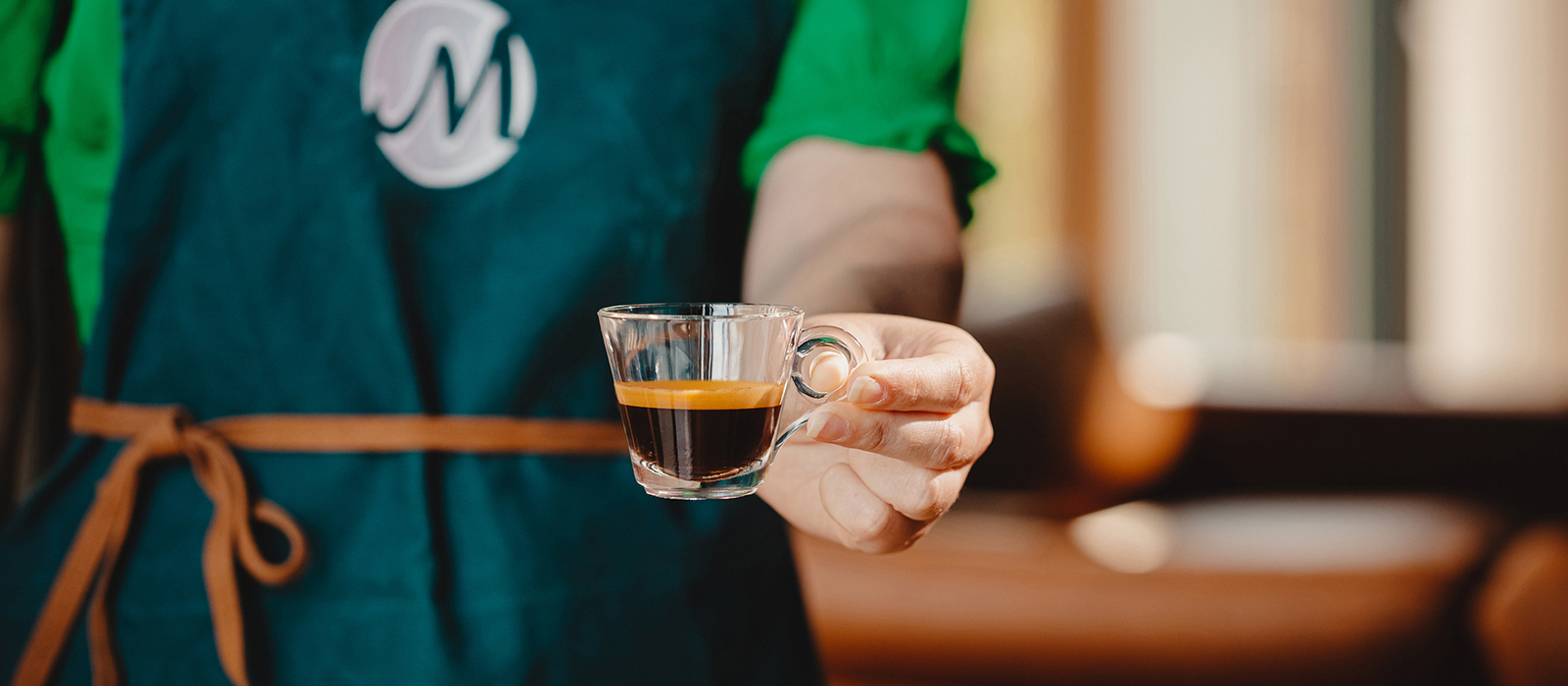
Kopi Luwak : the most expensive coffee in the world but the less ethical!

Written by Julie
Reading time 6 minCoffee, like other great consumer products, can be a diamond in the rough. Just like wine, there are coffees at all prices and more or less rare! Some can go for as much as £9 000 per kilo. We have compiled the Top 6 most expensive coffees in the world.
It’s finally time to tackle the first place in this ranking of the most expensive coffees in the world. With a price tag of up to 7 300£ per kilo, more than 50 times more expensive than Blue Mountain, this exceptional coffee comes from Panama.
It was in the Chririqui region that the founder of Ninety Plus experimented with this variety, originally from Ethiopia, and gave birth to Geisha Ninety Plus. This coffee is grown in a controlled manner and during the fermentation process, which is carried out in several stages, local yeast strains are used to eliminate the mucilage that surrounds the parchment and recover the beans. This stage must be perfectly controlled as the fermentation determines the profile of the cup.
The Ninety Plus team is committed to the environment by implementing a major reforestation plan around its operations. These methods also have an impact on the price of this Panamanian Geisha.
This Geisha has a little brother, called Ninety Plus Lycello. Inspired by the words “lychee” and “cello“, the Lycello was the first taste profile created at Ninety Plus Geisha Estates in Panama. It comes from the same plot as the Geisha mentioned above.
This coffee follows a so-called experimental processing. The cherries are dry fermented and then washed. The aim is to recover as much sweetness as possible at the beginning of fermentation and still obtain a nice aromatic clarity. This coffee is a micro-batch, produced in small quantities, at a high price.
Lycello is a specialty coffee with a score of 93/100. On tasting, it has an exceptional aromatic complexity with its floral and fruity notes. A delicate coffee with an incomparable subtlety!
You will soon find this coffee on our website maxicoffee.com!
If Black Ivory Coffee is one of the most expensive coffees in the world, at nearly 1 450£ per kilo, it is because it is fermented in the digestive system of elephants. The animal does not digest the coffee beans and rejects them in its excrement.
Black Ivory is produced mainly in Thailand. It takes about 30 kg of cherries to produce 1 kg of Black Ivory coffee. It is a coffee produced in small quantities, which explains its rarity and price.
In a cup, Black Ivory has the reputation of being smooth and pleasant, with a nice roundness in the mouth. This coffee is often exported to the world’s most luxurious hotels, which is quite amazing!
Bourbon Pointu originates from Reunion Island. It is an old Arabica variety that is grown at an altitude of between 1,000 and 2,000 metres. Its meticulous cultivation on the slopes of the Piton des Neiges volcano results in a rare production, which justifies its price per kilo of 380£. The coffee cherries are picked when perfectly ripe, then the beans are harvested and delicately treated before being dried.
Bourbon Pointu coffee is a speciality coffee, low in caffeine, which, when tasted, reveals an aromatic richness that matches its history. This delicate coffee can offer fruity notes, perceptible in the mouth, such as orange, tangerine and lychee, which make Bourbon Pointu coffee a grand cru! Enough to make you want to travel…
Kopi Luwak is a coffee from Indonesia, which follows a process quite similar to Jacu Bird… but with the help of another animal: an Asian civet cat called Luwak.
The Luwak lives partly in coffee trees and eats the coffee beans. Since it cannot digest them, it rejects them almost as they are. However, as the beans pass through the animal’s digestive system, they undergo enzymatic transformation and cellular degradation.
The aim is to achieve a rather greedy flavour profile in the cup, with a low bitterness. Nowadays, this method is developed in an industrial way, to the detriment of the animal. Wild civets are caught for this sole purpose and are often fed exclusively with low quality coffee cherries.
The Jacu is a Brazilian bird similar to the pheasant. It too loves to feed on coffee cherries. And he only chooses the ripest ones!
Long considered a pest by coffee growers, it now plays a role in the fermentation process of the Jacu Bird coffee beans. The beans are recovered from the animal’s excrement after digestion. Such a long and unpleasant process explains the high price of this coffee, at nearly 165£ per kilo.
Its production does not exceed hundreds of kilos, which makes it an exceptional coffee. The aim of this fermentation is to produce a subtle coffee that is both full-bodied and mild.
However, we do not support the exploitation of animals, which is why we do not sell Jacu Bird or other coffees made from the digestion of animals.
It is considered the precursor of specialty coffee, thanks to its highly controlled production process. The coffee trees grow in the Jamaican mountain range and the growing conditions play an essential role in defining the taste of the coffee. The mountain soils are rich and the climate is ideal (for the ripening of the cherries!).
To guarantee a quality product, only the ripest cherries are harvested by hand. After selection, the cherries are washed and then the beans are sorted. The so-called superior quality cherries are destined for export, which of course results in a rarer production and therefore a price to match, around €150 per kilo.
Blue Mountain coffee is also the only coffee in the world to be transported in barrels. A nice tribute to its history, as it was once exported in rum barrels! Rest assured, today’s green coffee is 100% sober!
Finally, just because a coffee is the most expensive in the world doesn’t mean it’s necessarily better. At MaxiCoffee, we aim to offer you all styles of coffee, at different price levels, so that you can find the coffee that suits you. Remember, you don’t have to go for one of the most expensive coffees in the world to have a great cup of coffee!
Discover all of our articles